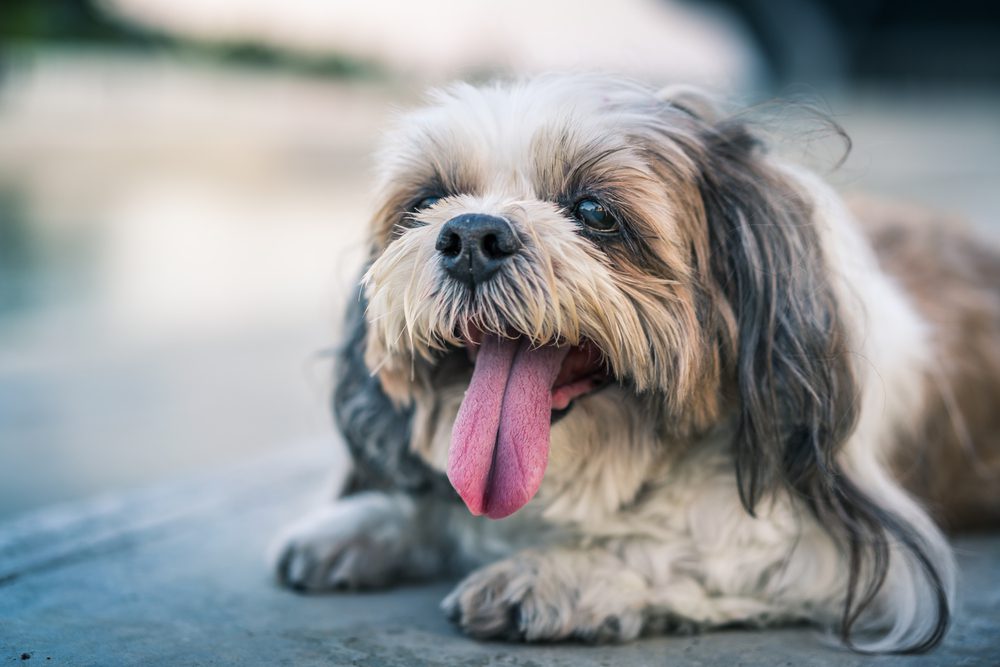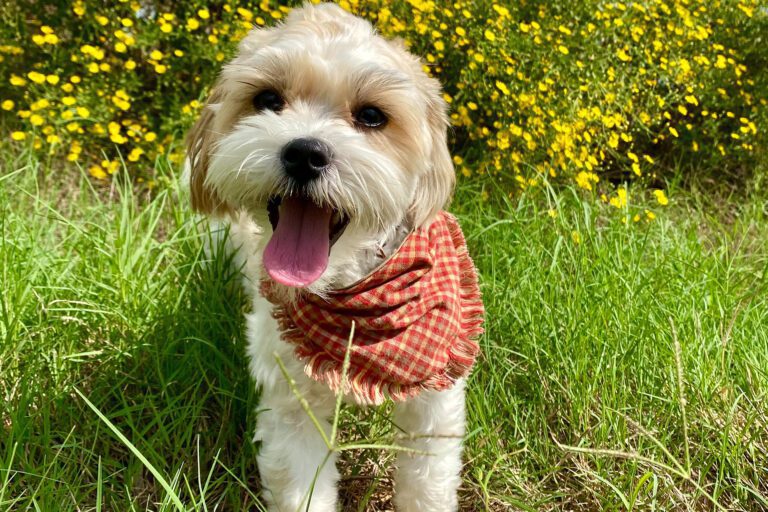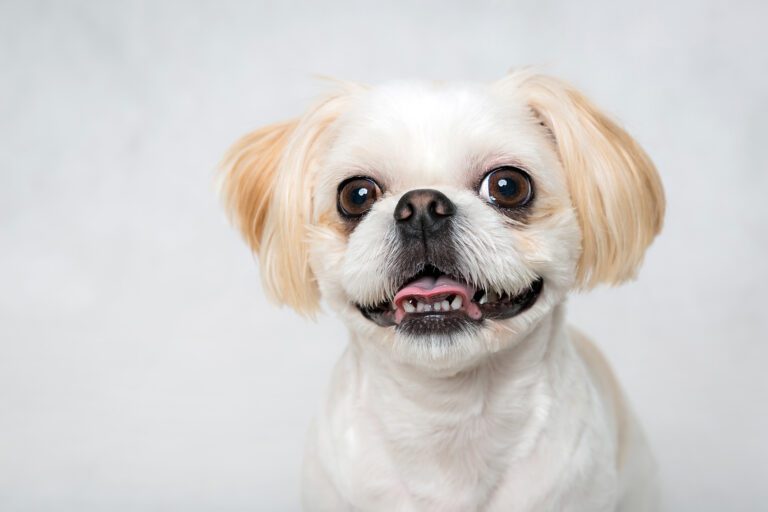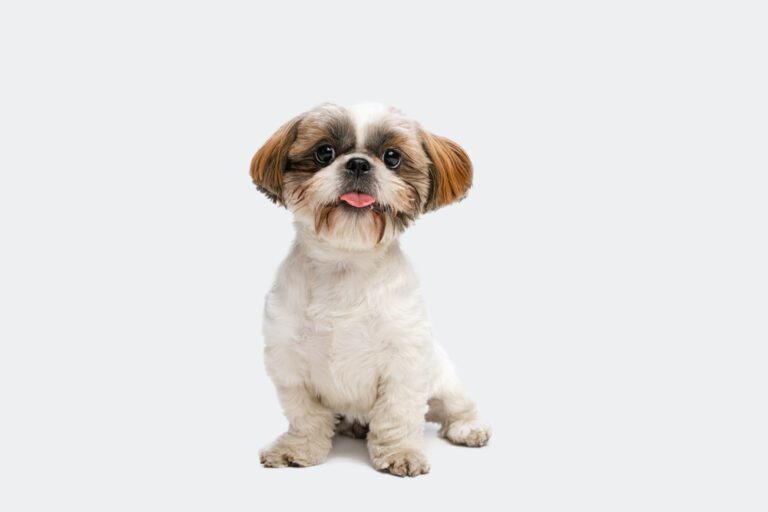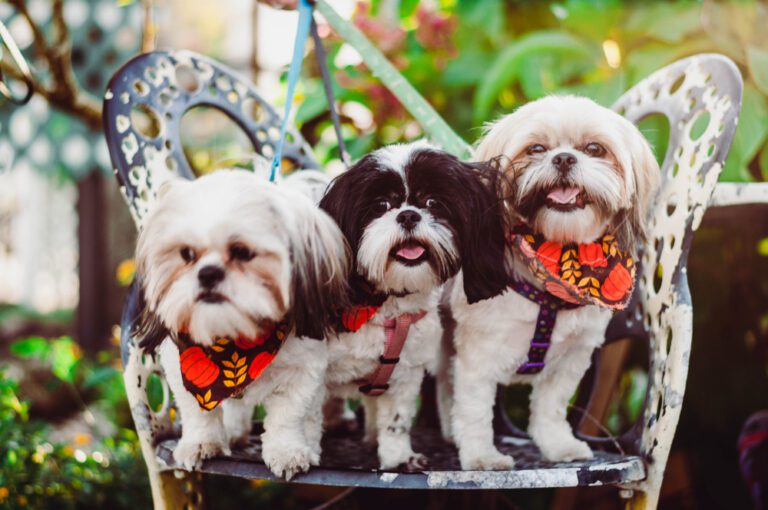Why is My Shih Tzu Panting? Causes and Solutions
Why is my Shih Tzu panting? While it’s normal for dogs to pant, excessive panting can indicate an underlying health issue. In this article, we will explore the reasons behind excessive panting in Shih Tzus and provide effective solutions to alleviate this discomfort.
There are several potential causes for excessive panting in Shih Tzus. One common reason is overheating. Shih Tzus are brachycephalic dogs, which means they have short snouts, making it harder for them to regulate their body temperature. Other causes include anxiety, stress, obesity, heart problems, respiratory issues, and pain.
To help your furry friend, it’s important to identify the underlying cause of their panting. If it’s due to overheating, make sure they have access to cool water and a comfortable, shaded area. If stress or anxiety is the culprit, consider implementing calming techniques or consult a veterinarian for professional advice.
Why your Shih Tzu is panting excessively is the first step toward providing them the care they need. So, let’s delve into the different causes and solutions for excessive panting in Shih Tzus.
Normal reasons for Shih Tzu panting
Panting is a natural way for dogs, including Shih Tzus, to regulate their body temperature. It helps them cool down and release excess heat. Dogs do not have sweat glands like humans, so panting is their primary cooling mechanism. It’s important to distinguish between normal panting and excessive panting.
Normal Panting
Normal panting occurs after exercise or when the weather is hot. Shih Tzus are energetic little dogs, and after a play session or a walk, they may pant to cool down. Additionally, if the temperature is high, your Shih Tzu may pant to release heat and maintain a comfortable body temperature.
Excessive Panting
It’s crucial to pay attention to the intensity and duration of panting. If your Shih Tzu’s panting is excessive, accompanied by other symptoms like restlessness, drooling, or disorientation, it may indicate an underlying health issue. In such cases, it’s important to investigate further to ensure your dog’s well-being.
Furthermore, dogs might engage in panting when they experience excitement or anxiety. It’s their way of managing their emotions and stress levels.
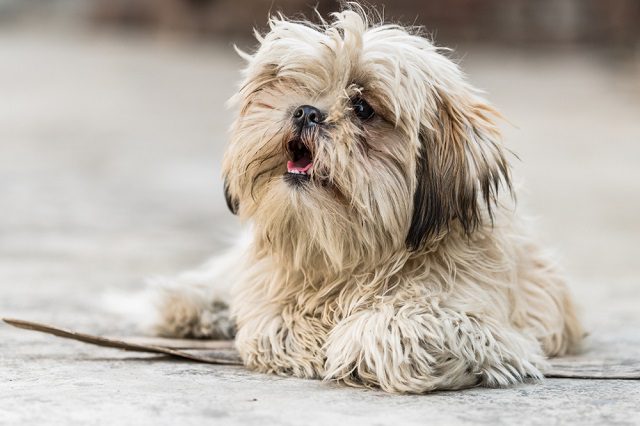
Health-related causes of Shih Tzu panting
Various health issues can cause excessive panting in Shih Tzus. Identifying these causes is essential for providing appropriate care and treatment for your furry companion.
Obesity
One common cause is obesity. Extra weight strains the dog’s respiratory system, making it harder for them to breathe properly. This can lead to panting as their body tries to compensate for the lack of oxygen.
Heart problems
Heart problems can also result in excessive panting. Shih Tzus are prone to certain heart conditions, such as mitral valve disease. When the heart is not functioning properly, it can lead to poor blood circulation and oxygenation, causing the dog to pant excessively.
Allergies and panting in Shih Tzus
Allergies can also contribute to panting in Shih Tzu. Similar to humans, dogs can exhibit allergies to various environmental factors, including pollen, dust mites, or specific foods. When dogs are exposed to an allergen, their immune system releases histamines, leading to inflammation and respiratory symptoms.
If your Shih Tzu is panting excessively and displaying other signs of allergies, such as itching, sneezing, or watery eyes, it’s important to consult a veterinarian. They can help identify the allergen and recommend appropriate treatment to alleviate the symptoms, such as antihistamines or allergy shots.
Heatstroke and overheating in Shih Tzus
Heatstroke is a serious concern for Shih Tzus, especially during hot weather or exposure to high temperatures for extended periods. Due to their brachycephalic nature, Shih Tzus have a harder time regulating their body temperature than dogs with longer snouts. This makes them more susceptible to overheating, leading to excessive panting.
If your Shih Tzu is panting excessively and shows signs of overheating, such as excessive drooling, rapid breathing, or weakness, it’s crucial to take immediate action. Move them to a cool, shaded area, provide access to fresh water, and use a damp towel to cool them down. If the symptoms persist or worsen, seek veterinary assistance, as heatstroke can be life-threatening.
Stress and anxiety as causes of Shih Tzu panting
Like humans, dogs can experience stress and anxiety. Various factors can contribute to stress in Shih Tzus, including changes in their environment, separation anxiety, loud noises, or unfamiliar situations. When dogs are stressed or anxious, they may pant excessively as a way to cope with their emotions.
If your Shih Tzu’s excessive panting seems to be related to stress or anxiety, there are several strategies you can try to help them relax. Providing a safe and comfortable space, using calming aids such as pheromone diffusers or calming music, and implementing positive reinforcement training techniques can all help reduce anxiety and alleviate excessive panting.
Common respiratory issues in Shih Tzus
Shih Tzus are a brachycephalic breed of dogs characterized by their short snouts and flat facial features. While this physical characteristic gives them their unique appearance, it makes them more susceptible to respiratory issues. These issues can contribute to excessive panting in Shih Tzus.
Stenotic Nares
One common respiratory issue in Shih Tzus is stenotic nares. This refers to narrowed nostrils that restrict the airflow. As a result, the dog may struggle to breathe properly and pant excessively. Surgical correction can often provide relief for this condition.
Brachycephalic Airway Syndrome
Respiratory issues, such as brachycephalic airway syndrome, can also contribute to panting in Shih Tzus. This condition is common in dogs with short snouts, like Shih Tzus, and can cause breathing difficulties. The dog may pant excessively to compensate for the restricted airflow.
Elongated Soft Palate
Another respiratory issue is an elongated soft palate. With this condition, Shih Tzus has a longer than normal soft palate, obstructing the airway and making breathing difficult. Panting is a common symptom of an elongated soft palate; surgical intervention may be necessary to alleviate the problem.
Tracheal collapse
Tracheal collapse is another respiratory condition that can cause excessive panting in Shih Tzus. This occurs when the cartilage rings in the trachea become weak and collapse, narrowing the airway. Panting can indicate respiratory distress in dogs with tracheal collapse, and appropriate treatment should be sought.
How to help your Shih Tzu stop panting
The underlying cause of your Shih Tzu’s excessive panting is essential in finding appropriate solutions to alleviate their discomfort.
Ensure a cool environment
Shih Tzus are sensitive to heat and have access to a cool and well-ventilated area, especially during hot weather. Use fans or air conditioning to keep the temperature comfortable for your dog.
Provide fresh water
Keep your Shih Tzu hydrated by offering them new, cool water throughout the day. Consider using a pet water fountain to stimulate your pet’s drinking habits.
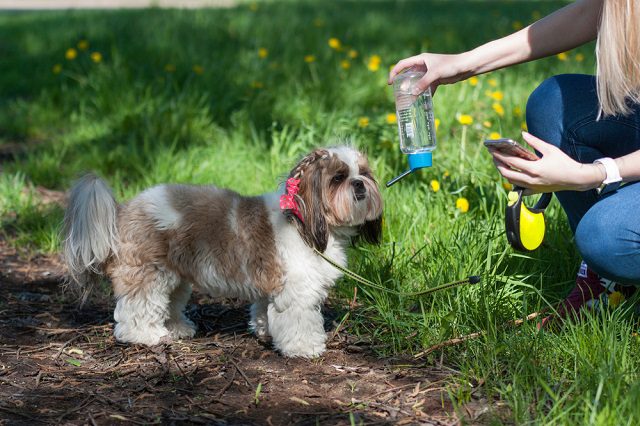
Avoid excessive exercise
While regular exercise is important for your dog’s overall well-being, be cautious not to overexert your Shih Tzu, especially in hot or humid weather. Adjust the intensity and duration of exercise according to their tolerance level.
Manage stress and anxiety
If stress or anxiety is the cause of your Shih Tzu’s panting, implement calming techniques like creating a safe space, using soothing music or aromatherapy, and maintaining a consistent routine. Consult with a veterinarian for additional guidance, especially if the anxiety persists.
Regular veterinary check-ups
Schedule regular check-ups with your veterinarian to monitor your Shih Tzu’s overall health and address any underlying issues causing excessive panting.
Preventing panting in Shih Tzus
Prevention is always better than cure for excessive panting in Shih Tzus. Here are some preventive measures you can take to minimize panting episodes:
Shih Tzu at a healthy weight
Obesity can exacerbate panting and strain your dog’s respiratory system. Maintain a balanced diet and exercise regularly to keep your Shih Tzu at a healthy weight.
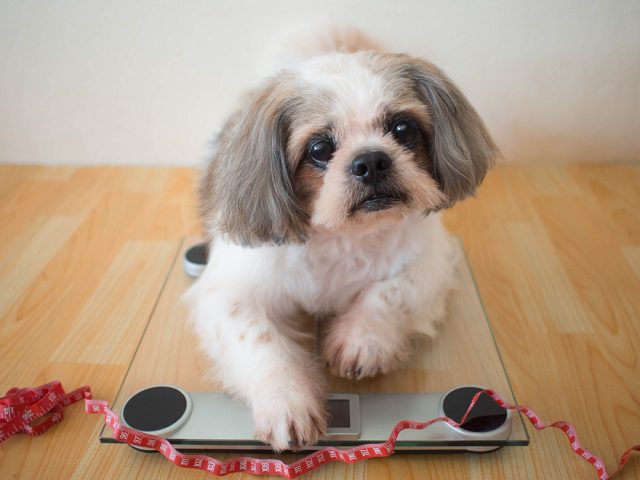
Avoid extreme temperatures
Shih Tzus are sensitive to both heat and cold. Avoid exposing them to extreme temperatures, and always provide appropriate shelter and temperature control.
Be mindful of allergens
If your Shih Tzu has allergies, identify and minimize exposure to the specific allergens that trigger panting and other allergy symptoms. Seek advice from a veterinarian for expert guidance on allergy management.
Train your Shih Tzu to tolerate handling
Shih Tzus may become anxious or stressed during grooming sessions or veterinary visits, leading to excessive panting. Gradually train your dog to tolerate handling and grooming procedures to minimize stress-related panting.
While it may not be possible to prevent panting in Shih Tzus completely, you can take steps to minimize the frequency and intensity of excessive panting episodes.
Final Thoughts: Why is My Shih Tzu Panting?
Excessive panting in Shih Tzus can cause concern, but understanding the underlying causes and implementing appropriate solutions can help alleviate their discomfort. Whether it’s due to overheating, stress, allergies, or health-related issues, identifying the cause is crucial in providing the necessary care.
If you notice your Shih Tzu panting excessively, observe their behavior and look for other associated symptoms. Seek out a veterinarian for a thorough assessment and the right treatment options. By proactively addressing the underlying cause and providing a nurturing environment, you can ensure your Shih Tzu leads a happy, healthy, and pant-free life.

